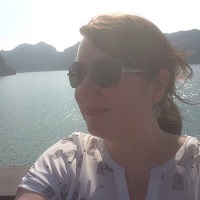∞ Originally published in the Vancouver Sun, June 7, 2020. ∞
New Zealand is the kind of place you go when you don’t want the world to follow. The country’s remote wilderness and pristine wellness retreats are so far removed from reality they seem to melt modern tension on contact: an alchemical reaction to inhaling the purest air on the planet.
If remote is what you want — and many of us are in dire need of healing retreats right now — New Zealand’s luxury wellness properties offer spectacular scenery, opulent accommodations, fine cuisine and unparalleled access to unspoiled nature to help you transmute stress into serenity, once international travel is again a reality.
The Luxury Lodges of New Zealand Association represents 30 of these extraordinary properties. Guests can stay on estates and ranches, vineyards, farms, lakes, even mountains only accessible by helicopter. I visited four exclusive properties – Aro Ha outside Queenstown, Mahu Whenua near Wanaka, Hapuku Lodge and Tree Houses in Kaikoura and Treetops Lodge and Estate by Rotorua – and found while each was unique, they shared an uncommon beauty, isolation, and a taste of the famous Kiwi hospitality: manaakitanga in Maori, which when taken together will bring you back to centre. Consider it a post-COVID-19 wellness retreat.
ARO HA
Aro Ha is a next-level wellness retreat that promises “adventures in well-being,” yet is so unassuming you’re apt to drive right by it. Or, fall into it. The spare building blends into the hills high above Lake Wakatipu, set amid a ring of peaks 40 minutes outside Queenstown on the South Island. As I wander the grounds on a tour, head in the clouds, mouth agape at the scenery, I’m so distracted I plunge foot first into a pool. Yes, the views are that incredible.
Aro Ha is designed as a group retreat for up to 18 guests, where all decisions are made for you. Yoga at daybreak with restorative tonics, hiking the mountains, daily deep tissue massage, sauna, spa and exercise classes, meditation and evening yoga. The solar-powered facility, which opened in 2014, features a Japanese design and offers treats like bespoke teas and bauxite clay treatments.
“People who come here want to restart their wellness, fitness, peace of mind — just find time for themselves and find stillness again,” says Aro Ha manager Paula Ryan. “One of our guests told me: ‘I didn’t realize six days of my life would make me a kinder person.’”
And a healthier one. The plant-based menu is made from scratch by chef Jenny Lomas, who dreams up dishes like quince porridge, minted almond-cheese ravioli and edamame spaghetti noodles with vegan Bolognese. Most produce, including apricots, hazelnuts and native figeoas, comes from the “food forest” on their land and assistant chef and nutritionist Nils Kloumberg sources nasturtiums, guava berries and marigolds and from their greenhouse. Call it the Zero Mile Diet: from dirt to dining room is just 10 feet.
“At the end of the week the guests have this glow,” Ryan explains. “They really do leave looking different — their shoulders are down.”
MAHU WHENUA
When I first see Mahu Whenua, driving from Wanaka through sweeping valleys, the highland property is bathed in golden-hour light: sun sparkles off a bend in the Motatapu River far below, horses canter over hills. The scene is such perfection, I’m left searching for a staffer cueing horses from just out of view.
This private home turned luxury lodge on 55,000 acres of highlands opened to the public in 2017. The owner’s aim was to turn the property — once home to four sheep stations and an old gold mine — into a rehabilitated national ecological trust. Today, 90 per cent of the land is protected by covenants, ensuring its future as a conservation area. For now, it serves as your personal national park.
Mahu Whenua is Maori for “healing the land.” The team began reforesting in 2004 and today have planted 1.6 million trees, including Manuka and beech, red tussock grasses and flax. The lodge employs a team to eradicate non-native pests such as possum, lizards, and stoat, and run bird breed-and-release programs to improve wild stocks of weka, tui and pukeko birds. Even the lodge is eco-friendly: solar powered and built with recycled wood and stones from the property. “The concept of Mahu Whenua is to return the land to its natural state,” says property agent Charlie Jones. “It’s the views that make you stop. You are absolutely in the moment.”
The entire property — as far as you can see — is yours to explore. As is the house chef. In addition to multi-course meals and gourmet breakfasts, enjoy evening canapés in the great room paired with local vintages like Burn Cottage Pinot Noir. Activities include horseback riding, heli-skiing, yoga, massage, hiking, feeding native birds, gold panning in the rivers, or taking a 4WD tour of the vast property with grounds manager Huntly McGregor, who oversees the native bird breeding initiative.
“I’ve seen the bird life come back a lot since I’ve been here,” he says, leading me through a fenced habitat to a clutch of weka birds. His office is enviable: blue skies, wispy white clouds, snow capped peaks, hawks swooping overhead — spacious, natural, beautiful — an environment so clean I want to drink it up. And so I do, cupping hands in a creek for a mouth of cold mountain water that quenches my soul. It’s not hyperbole. “No words,” reads one guestbook entry. “Too much beauty.”
HAPUKU LODGE AND TREE HOUSES
At Hapuku Lodge and Tree Houses in the marine wonderland of Kaikoura you can get away from it all — and above it — all with a stay in your own personal treehouse, 30 feet above ground in a canopy of Kanuka trees. Guests at Hapuku relax in one of five tricked-out treehouses with views over the canopy right out to sea and enjoy huge soaker tubs, wood fireplaces, plate-glass rain showers, fine linens and gifts of lemon lavender shortbread.
“There is a spirit of hospitality in New Zealand, and we call it manaakitanga,” says lodge general manager Chris Sturgeon, describing the Kiwi warmth that buoys strangers. “Our intent is to help you forget about the world for a little bit.”
The beauty of the deep is what draws most travellers to Kaikoura for adventures off the coast of this former fishing town. Swimming with dusky dolphins, kayaking with fur seals, boating next to breaching humpback, sperm and orca whales, watching albatross skim waves and blue penguins hop rocks are highlights. “That is what luxury is in New Zealand, it’s experiences,” Sturgeon says.
A gourmet experience is also on offer: Hapuku turns out fantastic food in a warm, inviting dining room, where guests chat and trade wine tips between tables. Executive chef Fiona Read puts sustainability on her menu. The lodge presses fresh olive oil from its very own grove, uses honey from bees they keep on the property and serves the catch of the day plucked from the sea just 10 minutes away. Chef Fernando Campos Da Silva plays beautifully with this bounty, sending out homemade bread with lodge olive oil, brill with zucchini and potatoes, roast duck, and a gourmet cheese plate with award-winning Kaikoura cheeses and honeycomb paired with a 2017 Mt. Beautiful Pinot Noir that tastes like black cherries.
It’s the kind of meal you linger over, swapping stories and sharing memories by the fire until the late hours. That, says Sturgeon, is part of the plan: “people come relax and feel like they’re at a friend’s home.”
TREETOPS LODGE AND ESTATE
For a final room with a view, I head to Treetops Lodge and Estate – the only place I’ve stayed where I’m greeted at the gate by a resident peacock.
It’s the first of many animal encounters on the thousand-hectare forested estate outside Rotorua on the North Island. It’s home to an astonishing array of wild life: 400 deer, alpacas, Asian water buffalo, wild turkeys, horses, sheep, wild boar, pheasants, ducks, even the odd Canada goose. Animals outnumber guests: the lodge sleeps 36. The lush property boasts four lakes stocked with trout, a sandy beach, 400 beehives, gardens, a waterfall and 70 kilometres of trails through 800-year-old forest to explore at your leisure.
“New Zealand is all about conservation,” says guest services manager Louis Schoeman. “We realize what we’ve got and we want to preserve it. The point is to come and switch off, to listen to yourself again and hear your inner voice.”
Unwind on a game drive with estate manager Dave Goodman, who somehow ensures majestic red stags leap from the bush at every turn. “It feels like a dinosaur is going to come around the corner, its got that look about it,” Goodman jokes. He has a point: the scale of the scenery in New Zealand has a hint of prehistoric about it.
Guests can also book horseback riding tours, hikes, traditional spa treatments, hunt or fish for trout, visit Rotorua’s geothermal attractions, take cooking classes from their Wild Food Cooking School program and learn about Indigenous plants on a guided Maori Food Trail hike with Maori naturalist Dani Hunwick.
Later, enjoy cocktails fireside in the vaulted great room then tuck into a tasting menu from chef Felipe Ponce, who grew up on Easter Island, met his Rotoruan wife in the Cook Islands and moved here to continue to explore Polynesian cuisine. He sources game meats and produce from the estate — expect to try venison, buffalo and game meat charcuterie — adding Indigenous ingredients like horopito pepper, pico pico ferns and kawakawa herbs from its forest.
“Our philosophy is estate to plate,” Ponce says. “We have so much here, it’s the best of the best.” It’s hard to argue: New Zealand and its luxury lodges with their wild spaces, warm hospitality and world-class accommodations invite superlatives — once we can explore again, do yourself a favour and go.
IF YOU GO:
New Zealand Tourism: NewZealand.com
Luxury Lodges of New Zealand: Lodgesofnz.co.nz
Aro Ha: Aro-Ha.com
Mahu Whenua: Mahuwhenua.co.nz
Hapuku Lodge and Tree Houses: Hapukulodge.com
Treetops Lodge and Estate: Treetops.co.nz
Elaine O’Connor travelled as a guest of Tourism New Zealand and Air New Zealand. Neither reviewed this article. Read more travel tales at Whywanderlust.ca, follow on Instagram @Why.Wanderlust or on Twitter @WhyWanderlust.

I’m a different kind of travel writer. I craft long-form, cover-worthy feature-length travel articles with style and substance. I tell travellers not just what to do, but why. Find out how to work with me.


